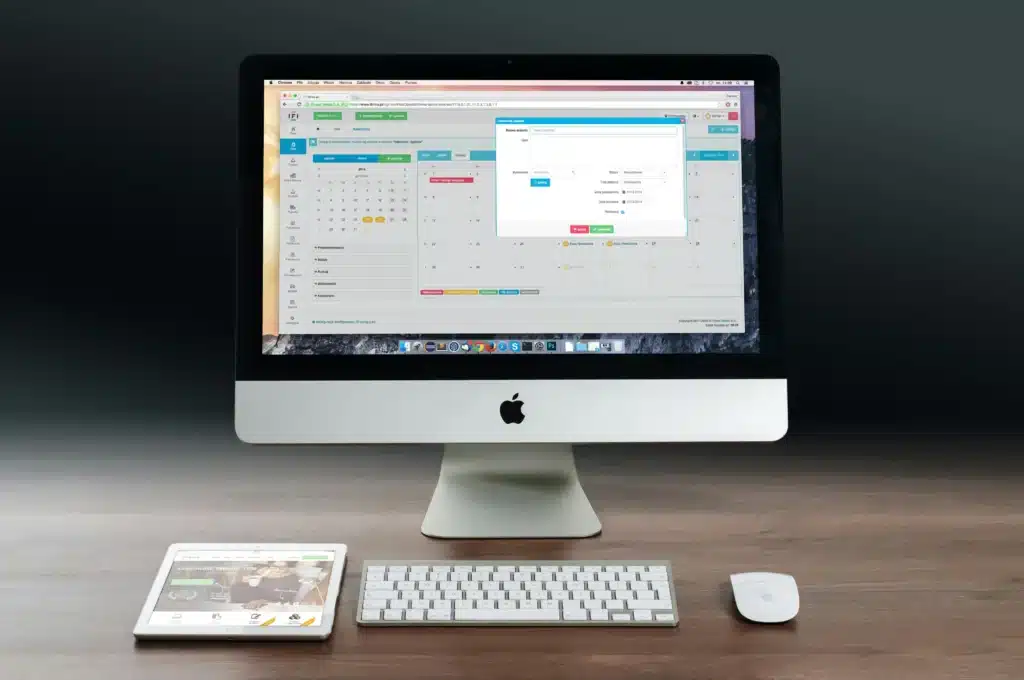Many companies get stuck because their software doesn’t grow with them. Perhaps you recognize this: you want to implement new processes, but your existing software is too rigid. Or you’re using only a fraction of the functionalities of a large ERP system while paying for the entire package.
Traditional one-size-fits-all software can actually slow down growth instead of supporting it. The solution? Modular software. A flexible approach where you choose only the features you really need, without unnecessary complexity.
But why are more and more companies opting for this approach? And what’s the business case behind this choice? In this blog, we answer these questions and show why this is the future.

Modular software consists of separate, independent components (modules) that can be combined to create a customized solution. Instead of a monolithic system that tries to do everything, modular software provides the flexibility to use only the functionalities relevant to your business.
Think of it as a construction kit: you choose the parts you need and can add or remove them later without replacing the entire system.
Many companies realize too late that their software wasn’t designed to grow flexibly. Modular software is essential to:
✔ Keep up with changing business needs: Easily add new features without a full IT migration.
✔ Offer customization without building custom solutions: No expensive adjustments, just modules that perfectly fit your needs.
✔ Save costs: Pay only for what you use, without unnecessary licenses.
✔ Improve efficiency: No complicated workarounds to make systems communicate with each other.
A modular approach allows continuous optimization of systems without rigid updates or restructuring. This means you can:
🔹 Add new features when you need them.
🔹 Remove outdated parts without impacting the rest of the system.
🔹 Automate specific processes without modifying the entire system.
Especially companies in dynamic sectors benefit from this approach:
With a modular approach, you avoid bloating your systems and only use what you really need.

Many companies work with a mix of different systems that don’t communicate with each other. This leads to data silos, inefficient processes, and an increased risk of errors.
Modular software is inherently built with integration in mind. This means you can:
✅ Quickly create links with existing systems such as ERP, CRM, or accounting software.
✅ Exchange real-time data without manual input.
✅ Be less dependent on custom integrations that are costly and time-consuming.
📌 Read also: Why Flexible Integration Is Key to Modern Business Software
Companies often waste money on unused software features. The modern way prevents this by offering a pay-as-you-go model, where you only pay for what you actually use.
The financial benefits are clear:
✔ Lower risk of expensive IT migrations when business models change.
✔ Faster implementation of new features without expensive consultants.
✔ Better ROI because companies can customize software to their needs.
Doing it this way is not only a cost-saving choice but also a strategic investment.
As companies grow, their systems need to scale. Many traditional software systems can’t handle this, forcing companies to implement new systems.
With modular software, companies can expand without disruption by easily adding new users and processes, gradually expanding without impacting daily operations, and making local adjustments without changing the entire system.
📌 Read also: Why flexible integration is key for modern business software

One of the biggest challenges in software implementations is user adoption. The more changes made at once, the greater the resistance from employees.
The new approach allows for gradual implementation of new features, so employees:
✅ Don’t have to learn everything at once.
✅ Adapt faster to new tools.
✅ Feel less resistance to change.
🔹 Can I still use modular software if I don’t want to change my current systems?
Yes! You can run it alongside your existing systems, and it can be implemented gradually. So, you don’t have to make a full switch right away.
Companies that choose modular software benefit from lower costs, flexible growth, and better integration. Whether you’re a startup looking to scale or an established organization aiming to work more efficiently, this approach offers the agility modern businesses need.
💡 Want to know how modular software can empower your business? We’d be happy to help. Book our free IT Quick Scan and explore the possibilities!

"*" indicates required fields
